Learning some Scheme/Racket, so give me some leeway.
Currently trying to find the max value when given a list without using the built-in max() function.
Current Code:
#lang racket
(provide max-num)
(define (max-num lst)
(define (helper lst max)
(displayln lst)
(displayln max)
(displayln " ")
(when (null? max) ; first run
(helper (cdr lst) (car lst)))
(if (null? lst)
max ; then end
(if (> (car lst) max) ; else compare
(helper (cdr lst) (car lst)) ; then update max
(helper (cdr lst) max)))) ; else keep max
(if (null? lst)
#f ; then Error
(helper lst '())) ; else run helper
)
(max-num '())
(max-num '(1 5 2 4 3))
Output via DrRacket:
As far as I can tell, the displayln outputs tell me I am on the right track. However, it ends up with a contract violation real? error instead of returning the max value.
I'm guessing that the (if (null? lst)) doesn't want to return "max" at the end and instead pushes towards the else branch despite the list being empty. I've looked around and debugged for about an hour now to no avail. Any help would be greatly appreciated.
